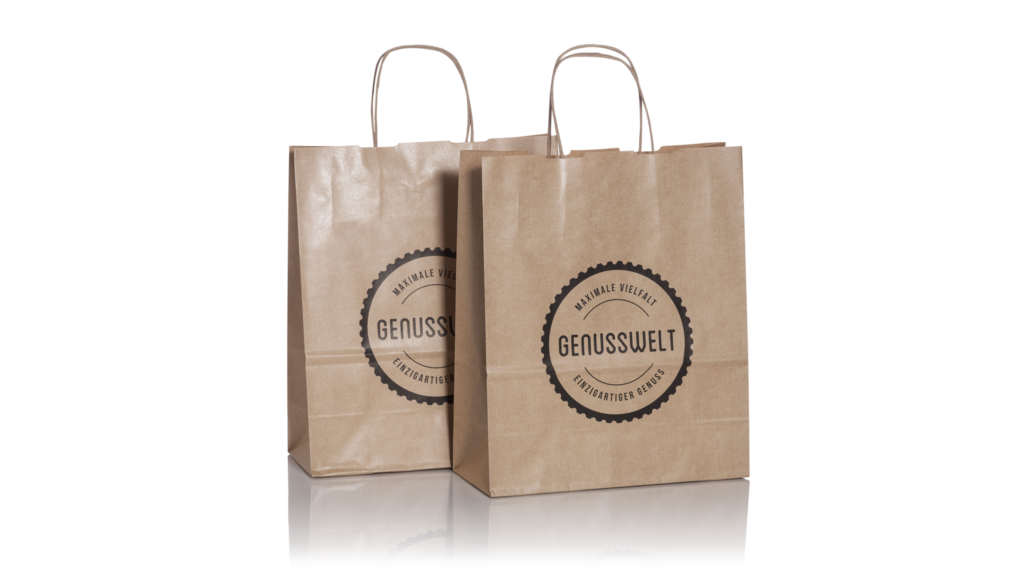Eco-friendly paper bags are gaining popularity as businesses and individuals shift from plastic. With paper bags printing, these sustainable options can be customized for branding while offering an environmentally friendly and stylish packaging solution.
But did you know different types of paper are used for printing eco-friendly paper bags? Each type of paper has its unique qualities, and choosing the right one depends on your needs.
In this blog, we’ll explore the most commonly used types of paper for eco-friendly paper bags printing, their features, and why they’re a better choice for the planet. So, let’s discuss in detail.
Why Choose Eco-Friendly Paper Bags?
Before we get into the types of paper, let’s talk about why eco-friendly paper bags are so important.
Approximately 300 million tons of plastic waste are produced every year, with a large portion of it ending up in oceans and landfills. Traditional plastic bags take 400 to 1,000 years to decompose, whereas paper bags break down much faster and are easier to recycle.
Switching to eco-friendly paper bags not only reduces waste but also minimizes carbon footprints. Many businesses are now choosing paper bags as a sustainable option, especially since these bags are biodegradable and made from renewable resources.
Types of Paper for Eco-Friendly Paper Bags Printing
When it comes to printing eco-friendly paper bags, the type of paper you choose plays a big role in the bag’s durability, appearance, and environmental impact. Let’s explore the most common options:
1. Kraft Paper
Kraft paper is the most widely used type of paper for eco-friendly bags. It is made from wood pulp using a chemical process that retains the natural color of the fibers.
- Features:
- Strong and durable
- Available in natural brown and bleached white options
- Can be recycled up to 5-7 times
- Biodegradable
Why it’s great for eco-friendly bags
Kraft paper is lightweight yet strong, making it perfect for carrying groceries, clothes, and small products. It has a rustic, earthy look that appeals to eco-conscious consumers.
Approximately 70% of recycled paper products are made using kraft paper, making it one of the most sustainable options available.
2. Recycled Paper
Recycled paper is made from post-consumer waste, such as old newspapers, magazines, and used paper products. This type of paper is a favorite for businesses that want to emphasize sustainability.
- Features:
- Reduces the need for new raw materials
- Often has a slightly rough texture
- Can be customized with printing and colors
Why it’s great for eco-friendly bags
Recycled paper helps reduce deforestation and the waste sent to landfills. Using it for paper bags promotes the circular economy by reusing existing resources.
Recycling 1 ton of paper saves 17 trees, 7,000 gallons of water, and reduces energy usage by 60% compared to producing new paper.
3. Bleached White Paper
While kraft paper often comes in its natural brown color, bleached white paper is an option for businesses that want a cleaner, more polished look. The paper is treated to remove the natural brown shade, resulting in a bright white finish.
- Features:
- Smooth texture for high-quality online bag printing
- Ideal for branding and logos
- Fully recyclable and biodegradable
Why it’s great for eco-friendly bags
Bleached white paper is a popular choice for luxury brands and retail stores that want their paper bags to have a premium feel.
Despite the bleaching process, modern methods ensure that the paper remains 100% recyclable and has a lower environmental impact compared to plastic alternatives.
4. Cardstock Paper
Cardstock paper, also known as paperboard, is a thicker and sturdier type of paper. People commonly use it for eco-friendly bags that carry heavier items.
- Features:
- Thick and durable
- Smooth surface for high-quality printing
- Available in various colors and textures
Why it’s great for eco-friendly bags
Cardstock paper is ideal for businesses selling heavy products, such as electronics or bottled goods. Its strong structure ensures the bag won’t tear easily.
A paperboard bag can hold up to 20 pounds, making it a reliable option for carrying bulky or heavy items.
5. Handmade Paper
Artisans often make handmade paper from recycled cotton, jute, or plant fibers. This type of paper is eco-friendly and has a unique, textured appearance.
- Features:
- Biodegradable and compostable
- Often made without chemicals
- Adds a unique touch to bags
Why it’s great for eco-friendly bags
Handmade paper is perfect for small businesses or eco-friendly brands that want their packaging to stand out. It’s also highly customizable and supports local artisans.
Handmade paper production uses 50% less energy compared to machine-made paper, making it a greener choice.
6. Bamboo Paper
Bamboo paper is a sustainable choice for eco-friendly bag printing, as it grows quickly and serves as a highly renewable resource for packaging.
- Features:
- Strong and durable fibers
- Naturally biodegradable
- Soft texture, similar to traditional paper
Why it’s great for eco-friendly bags
Bamboo paper is an excellent choice for brands that want to promote sustainability and innovation. It’s durable enough for everyday use while being kind to the environment.
Bamboo can grow up to 3 feet per day, making it one of the fastest-growing plants in the world. This makes bamboo paper highly sustainable.
Final Thoughts
Eco-friendly paper bags are a fantastic alternative to plastic bags. By choosing the right type of paper, you can create sustainable, stylish, and functional packaging for your business.
From durable kraft paper to innovative bamboo paper, at our printing company in UAE, there is an option for every need.
Switching to eco-friendly paper bags doesn’t just help the environment – it also shows your customers that you care about sustainability.
Start making the change today, and let’s work together for a cleaner, greener future!


